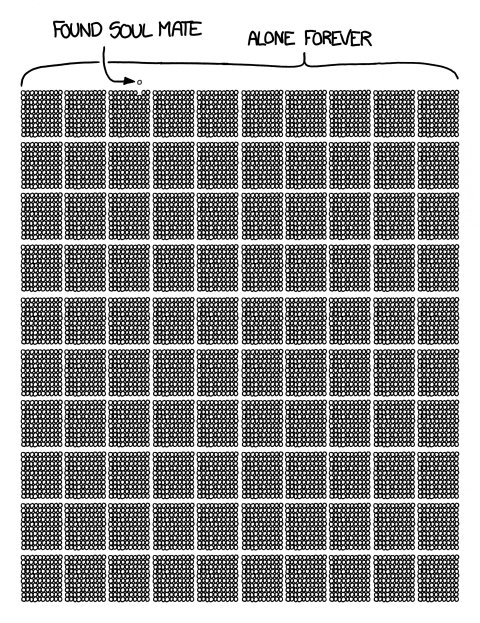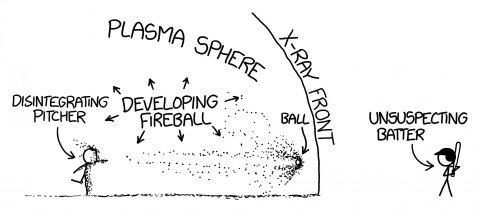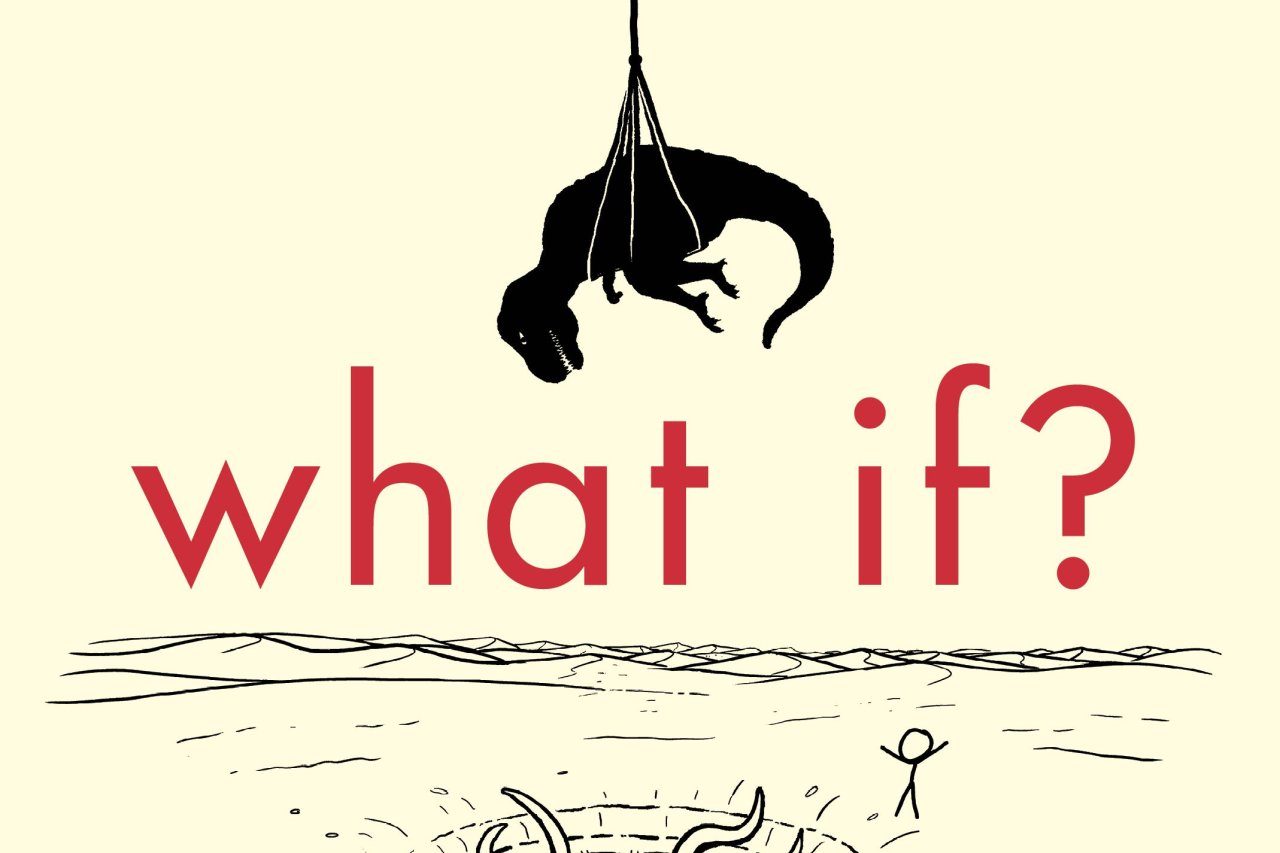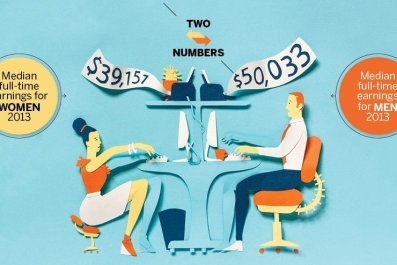The Internet is history's greatest repository of minutiae, and its greatest generator.
And that information is proliferating, mostly in the form of facts, both grand and trivial. The Twittersphere is awash with the stuff, with UberFact leading the way, spitting out to its 7.18 million followers such treasures as, "There are enough diamonds in existence to give everyone on the planet a cupful."
The problem, as Newsweek's Alex Nazaryan recently noted, is that many of these "facts" are such in name only. Earlier this year, Gizmodo writer Matt Novak checked 64 UberFacts — one full day's worth — for veracity. They scored a 59%, easily a failing grade. This, as Nazaryan points out, is characteristic of the Internet's locust like storm of knowledge-providers that "assert first, ask later" and rarely, if at all, provide a modicum of insight.
Randall Munroe might be the antidote. Or, at the very least, an appealing salve.
You probably haven't heard of Munroe, but chances are you've come something on his XKCD, even if you haven't visited directly, someone's almost surely e-mailed you, G-chatted you or texted you a link to one of his "webcomic[s] of romance, sarcasm, math and language.
Munroe, 29, is a former NASA roboticist who began to write and draw XKCD full time in 2006. He knows his stuff, but beyond that, he understands our modern condition—one drawing, for example, highlights everything that's right and wrong with movie science montages and gets it exactly right; another nails human consciousness as well as anyone since John Searle.
Munroe's stick figure characters also live in the world of UberFacts—only someone who fully lives the world of Twitter, Reddit and Javascript will get all the jokes—but have a decidedly different relationship to the absurd cascades of information than do the supposed "curators" of information who guilefully sell wonder while retaining none of it themselves. They, on the other hand, are by turns exasperated, fascinated, ironic and sardonic—humans trying to both understand, and dig themselves out of the, informational mess we've made.
His latest book, What If? Serious Scientific Answers to Absurd Hypothetical Questions (on sale September 2), is a slightly different approach to the same problem. The book basically flips the UberFacts model on its head: instead of providing inane, useless and often incorrect answers to unasked questions, Munroe takes inane, useless and often quite pointless questions asked by real humans (mostly sent to him through his website), and turns them into beautiful expositions on the impossible that illuminate the furthest reaches, almost to the limits, of the modern sciences. The first chapter, "Q. What would happen if the Earth and all terrestrial objects suddenly stopped spinning, but the atmosphere retained its velocity?" ends with the anthropomorphized moon worrying over the state of the Earth, and, with the gravity generated by its own rotation around the Earth, saving our dying planet. The physics are real; so is the emotional content.

"They say there are no stupid questions," writes Munroe in the book's introduction. "That's obviously wrong…. But it turns out that trying to thoroughly answer a stupid question can take you to some pretty interesting places."
The stupid questions range from how high a human can throw a ball (Munroe answers the question in a novel unit of measurement: giraffes) to how we might build a stable Lego bridge from London to New York to what would happen if we drained the Earth's oceans. I particularly enjoyed a discussion of what might happen if a baseball player were to try to hit a pitch thrown at 90 percent of the speed of light.

According to the book's publisher, Munroe ran computer simulations, read through declassified military research memos, and consulted with nuclear reactor operators, all in an effort to effectively answer our stupidest questions. It shows: not everyone will understand all of scientific and mathematical details he draws out in his answers.
On the other hand, the answers are all illustrated with XKCD's trademark stick figures—as a bonus, the dust jacket folds out into a intricately drawn map of the Earth-sans-oceans—and these are eminently approachable.
These are explorations drawn from the same language of Twitter, with many of the same rhetorical flourishes, but with none of the disingenuousness of a corporation trying to "grow their following" or a pedant attempting to appear brilliant. It also launches itself from an assumption that it will be answering questions that cannot be found through a Google search. And in that way, it's simultaneously a throwback to a time when answers had to be worked out and not simply found, but also essentially contemporary, well aware of its position as one more voice in the nonstop chatter of the digital world.


























